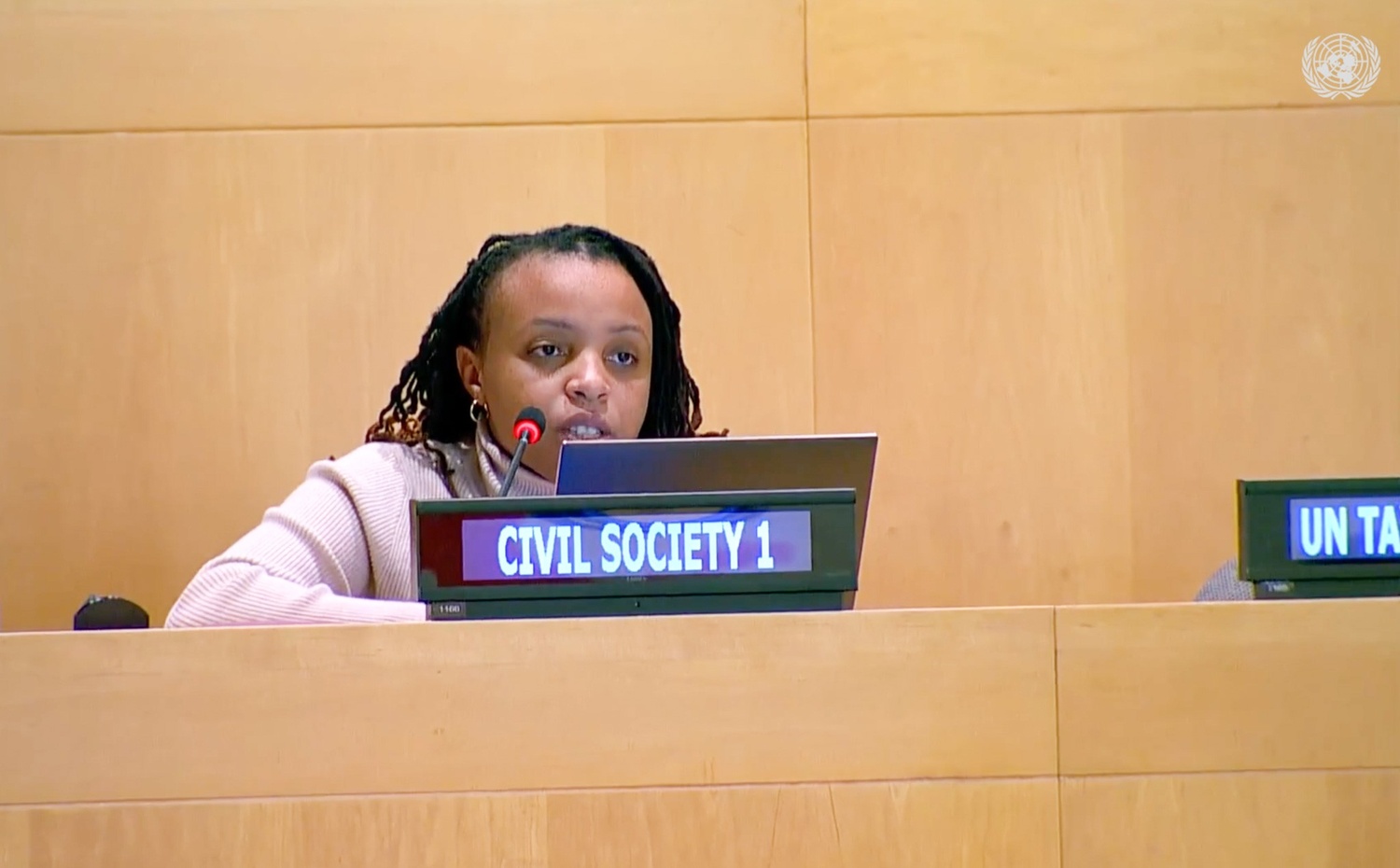Date

Tax Justice Network Africa (TJNA) speaking on behalf of the Tax and Gender Working Group, reinforced its commitment to fostering inclusive and equitable tax systems, emphasising the necessity of gender-responsive taxation in achieving economic justice.
This call for gender-inclusive tax reform was made at the 2025 ECOSOC Special Meeting on International Tax Matters, which was held on 28 March at the United Nations headquarters in New York, USA.
Organised by the United Nations Economic and Social and Social Council (ECOSOC), the meeting brought together stakeholders, including members of the UN Tax Committee and representatives from international organizations, businesses, civil society, and academia to discuss and identify effective fiscal policy approaches that promote inclusive and sustainable development while advancing progress toward a fair, inclusive, and effective international tax system.
Speaking on behalf of the Society for International Development’s Tax and Gender Working Group, coordinated by the Global Alliance for Tax Justice (GATJ), TJNA’s Policy Officer Tax and the International Financial Architecture, Ms. Everlyn Muendo highlighted the persistent inequalities entrenched within global economic and fiscal systems. She noted that nearly thirty years after the adoption of the Beijing Declaration and Platform for Action, gender disparities in taxation remain a critical concern.
“Tax systems are not gender-neutral,” Ms.Muendo stated. “A tax system that fails to consider gendered economic realities—such as income disparity and the burden of unpaid and underpaid care work—is not neutral; rather, it reinforces inequality.”
Regressive taxation models, underfunded public services, and austerity measures continue to deepen economic disparities, disproportionately impacting women. The reliance on consumption taxes places an undue burden on those least able to pay, increasing both gender and economic injustices.
Ms. Muendo stressed the importance of recognizing care work as both a public good and a fundamental human right. “Unpaid and underpaid care work sustains our economies, yet it remains largely invisible in tax and fiscal policies,” she noted.
“Progressive taxation is essential to restructuring the social organization of care, ensuring that those with the greatest ability to contribute pay their fair share. This will enable governments to fund essential gender-transformative public services such as childcare, healthcare, and social protection.”
She further echoed that progressive taxation is more than a fiscal tool; it is a cornerstone of gender justice. The ongoing UN Tax Convention negotiations present a historic opportunity to create an equitable global tax system that does not marginalise the Global South or overlook the gendered dimensions of taxation.
In conclusion, she reiterated TJNA’s call for gender considerations to be explicitly incorporated into international tax policies. “A truly gender-equitable tax system is not just about removing explicit discrimination; it is about designing policies that actively close gender gaps. Tax justice is gender justice, and gender justice is the foundation of a fairer world.”
TJNA remains committed to advocating for inclusive tax reforms that address systemic inequalities and ensure that taxation serves as a tool for social and economic justice.
Related resources
For more information on the 2025 ECOSOC Special Meeting on International Tax Matters, please contact Everlyn Muendo at emuendo[@]taxjusticeafrica.net.